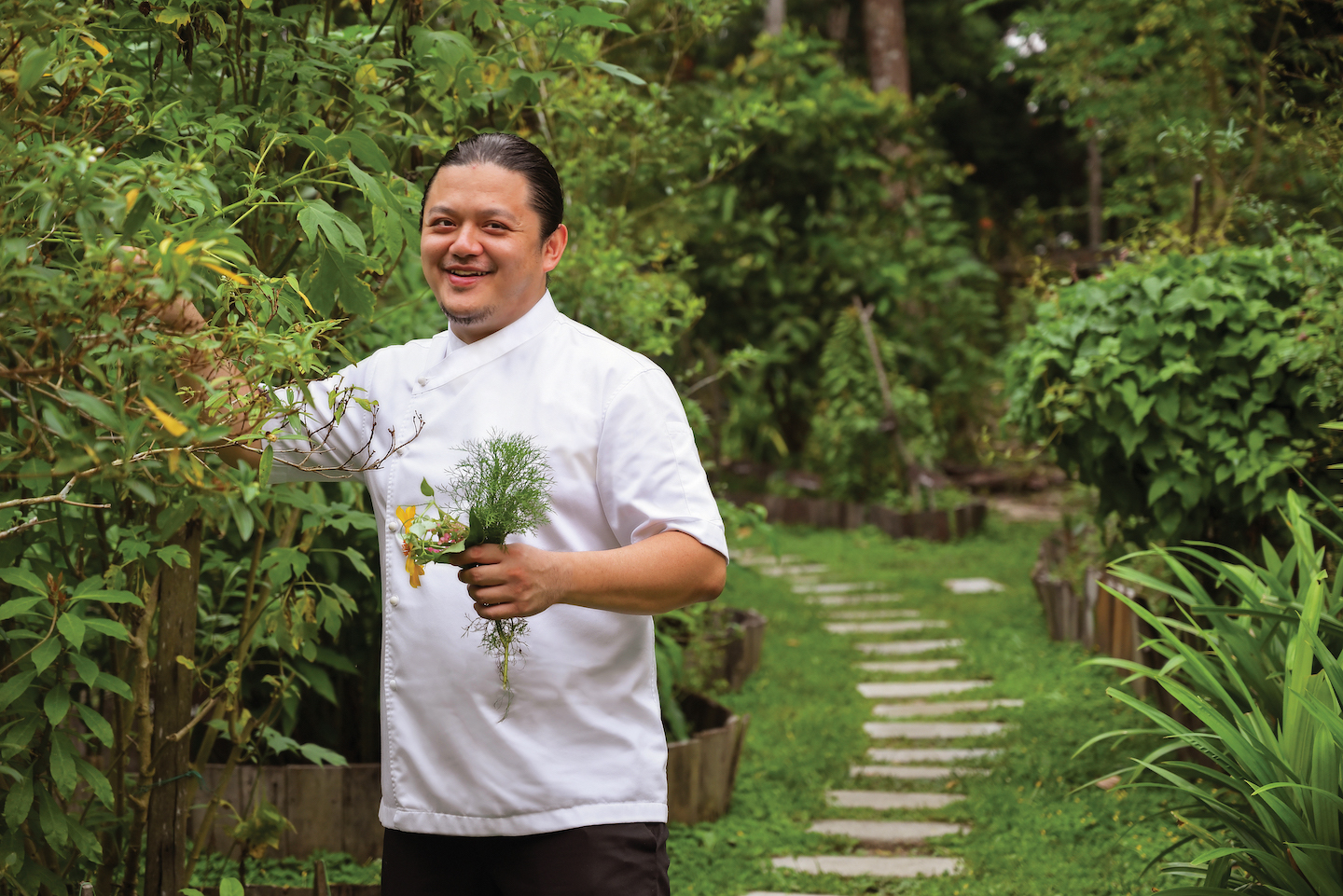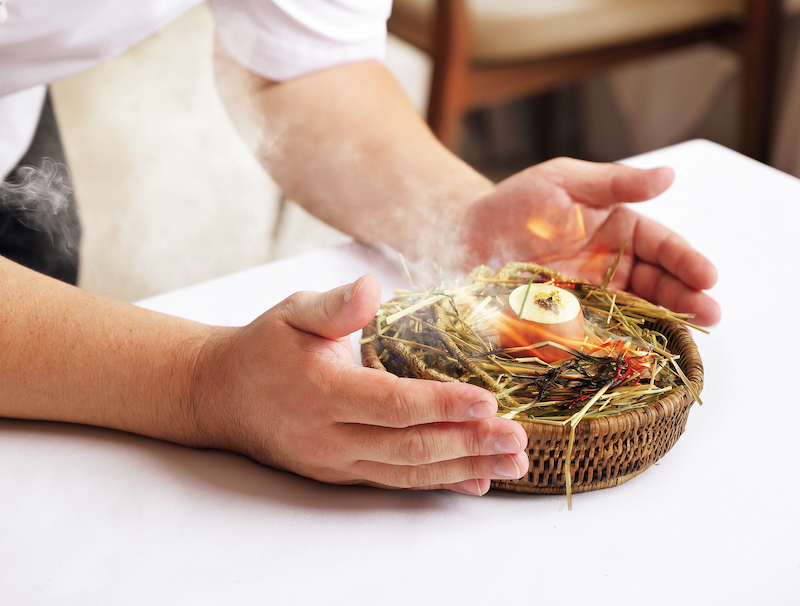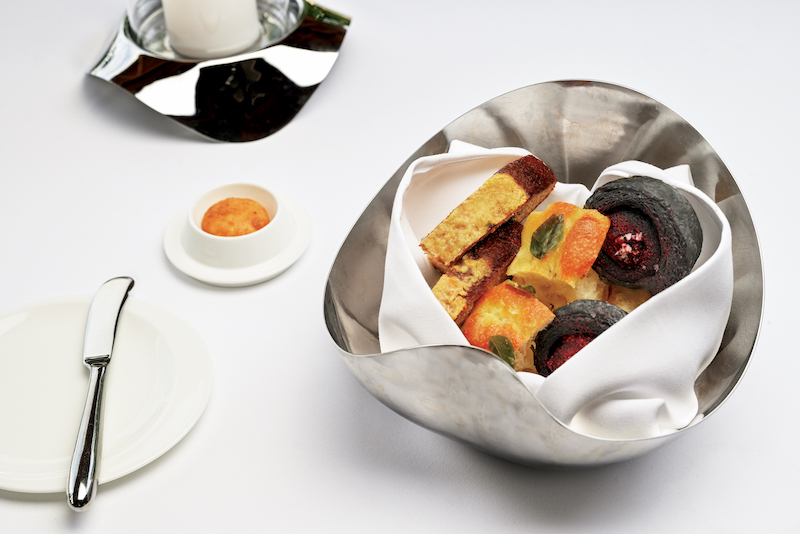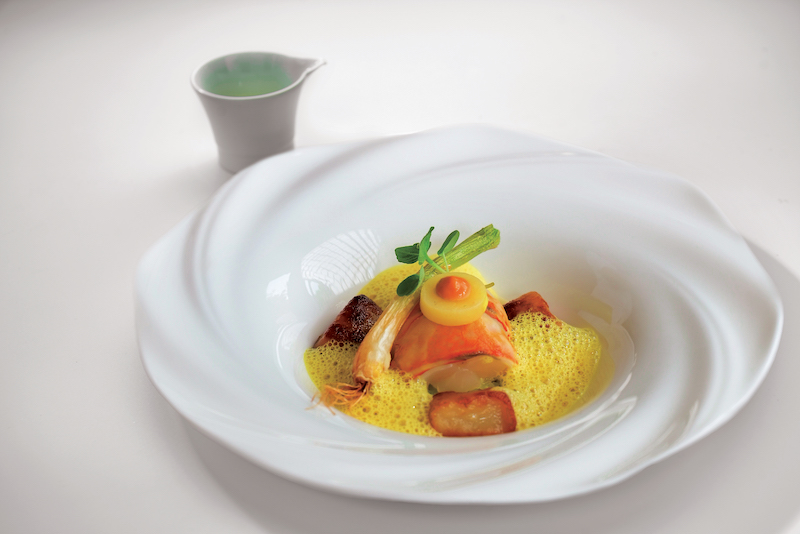
Chef Chai Chun Boon also founded the alcohol-free European restaurant Copper in Kuala Lumpur (All photos: The Datai Langkawi)
Sarawak-born Chai Chun Boon knew he had only one chance to go overseas. So every time he worked as he travelled, he would save up money to eat in the best restaurants, telling himself, “If not now, then when?”
Far from a gourmand indulging in culinary pleasures, this was a young chef out to accumulate flavour memories. “I tried my best to understand what was given to me and what was presented, and how the combination of flavours worked.
“After a long time of building that memory bank, when you come back to Asia and are given a certain amount of ingredients, you start connecting the flavour profiles you have from the last 12 to 15 years. And things generally work out.”
They certainly do, in an enticing nine-course degustation menu that allows this new senior chef de cuisine at The Datai Langkawi to blend his experience of serving at two- and three-Michelin-starred restaurants in Europe with what he does best.
When Chai plans a degustation menu, his purpose is not to show off culinary skills. “I don’t think I’m the best cook in the world and I tell everyone that. What I’m good at is combining flavours. I’m selling you the best flavours I can orchestrate. Hence, I spend a lot of my time tasting.”
He believes food has to engage all the faculties and stimulate one’s emotions and does that by offering guests a flavourful dining experience that tips the scale in his favour in the fiercely competitive culinary world. Chai is also known for favouring a farm-to-table approach that guarantees freshness.
“I am willing to challenge anybody in flavours, anybody, because I know my strength. I tell my team the same thing: You already have the Europeans who built the foundation in cooking. You will never be able to do better than them.
“What I can do better is invest in things they don’t have — the Asian flavours I grew up with — and combine these with European flavours and techniques. I spent all my money dining in restaurants to build the flavour profiles so when I need to create my dishes, they will come to my head.”
Chai credits his late father for journeys around the world that led back to Malaysia, and now honours him through food. Tribute Royale — the first item on his degustation menu at The Datai’s all-day The Dining Room — is an organic egg with truffle, jungle garlic and caviar, presented in a “bird’s nest”.
the_datai_langkawi_-_chef_chai_preparing_tribute_royale-02_1.jpg

“The first place I stopped and dined at with my own money was Alain Passard’s three-star L’Arpège in Paris, which is famed for its hot and cold egg. I took the idea for that and implemented it my way — hot and cold, sweet and salty.”
Another French chef, who won his three stars in Japan, blew Chai’s mind by flavouring his sauces with soya sauce instead of wine. “I could use anything,” he thought, and began introducing vinegars and different kinds of liquids into his sauces.
Chai, who founded the alcohol-free European restaurant Copper in Kuala Lumpur, says he enjoys cooking a plate with aromatics more than with alcohol, “a shortcut to making sauces”.
Menu ideas and kitchen takeaways shape Chai’s food concepts and help him bridge the fundamentals of European haute cuisine with cross-cultural techniques and the sensibilities of the Asian palate. He surprises diners by combining textures, aromas and ingredients to expand the range of flavours and intensities of a traditional degustation menu.
One interesting example is the Black & White Iranian Sevruga Caviar, served with scallop umai, sago pearls and kaffir coconut dressing. Kaffir lime, chilli, lemongrass and masala spice add piquant flavours to this dish inspired by the umai, a traditional, Bornean favourite prepared using raw fish.
The staff bring out a selection of artisanal breads to go with The Datai’s signature yeasted butter after three courses. Man, and woman, would have feasted on the focaccia and charcoal bread alone if these had been laid before them at the start of the meal.
04-chef_chai-degustation_menu-artisanal_bread-01.jpg

Chai knows the temptation of a scrumptious loaf. “They’re always awesome and you just go, go, go. Then you are full and you don’t know what you’re going to have next.” Placing the bread on the table later helps diners pace themselves, he says.
Vichyssoise served hot with Catch of the Andaman Sea — lobster and squid — highlights what the resort gets in abundance from the surrounding waters. The many kilos of prawns served on the entire premises means lots of shells, to which the chef just adds water and keeps at a low simmer to bring out their sweetness.
The luxury resort’s degustation menu is paired with fine wines and champagne handpicked from its wine cellar by the resident sommelier. For those who do not drink, light mocktails and a range of teas make satisfying pairings too.
“The Dining Room offers locavore cuisine inspired by our locality, the terroir of the Andaman Sea and its bounty, the history, people, culture as well as [our] strategic location. Combined with the use of herbs and spices sourced locally, we aim to create nuances of flavours that aromatise and tease the palate,” says Chai.
He certainly knows how to tease a gourmet’s palate. The first time he met the resort’s top management at an off-menu event in Kuala Lumpur last year, he served them Pesto Porridge, which had sea-caught prawns glazed with kombu, some puffed grains, herbs and garnishes. Everyone was doing truffles and wagyu, but Chai chose to cook porridge, something he grew up eating and does quite well.
“It’s also soulful for me. If you give me porridge every morning, that could be my breakfast. It could be my lunch and dinner too.”
05-chef_chai-degustation_menu-vichyssoise_and_catch_of_andaman_sea-04.jpg

Wowing with porridge brings to mind what Chai terms his “biggest takeback” from a three-star restaurant where, instead of caviar, foie gras and truffles, the star attraction was a dish made using pretty much the cheapest vegetable in the world — cucumber. “The highlight was being able to present a simple ingredient and make people go ‘wow!’”
One could probably say the same for his porridge. The next thing Chai knew, he was flying to The Datai to cook for a VIP but, because of some miscommunication, ended up preparing a meal for general manager Arnaud Girodon and a couple of management staff instead. “They offered me a job right after.”
He brings impressive credentials to The Datai’s table. After studying European culinary management in Switzerland, he worked at two-Michelin-starred ABaC in Barcelona and the three-star Oud Sluis in the Netherlands. In 2011, he moved to Singapore and joined Santi, the first Asian outpost of three-Michelin-star chef Santi Santamaria’s fine-dining restaurant. His next stops were Pollen at Gardens by the Bay, then Graze, where he was head chef. He turned to Malaysia in 2014 and set up Copper a year later. The restaurant closed in mid-2020 after the lease expired.
When cooking for guests, Chai’s aim is always to nourish and please with food that is pleasant and soulful. “I love to give soulful food from which you can feel some passion and love in the flavour.
“Lots of fine dining — when you go up to the three-star level — gets very, very fine. It’s not explorative anymore; they want things to be perfect, manicured. It’s very predictable.
“I don’t think I want my guests to feel that way. I want them to always find something new in my dishes. There may be hiccups. I think accidents can be very beautiful sometimes, whereas food that is too manicured loses its soul.”
“I want to be able to present food with flavours that showcase the love my mum has for my [three] children. A chef friend I told this to said no, it’s not possible. It’s not what a Michelin-starred restaurant is about.”
With his vast experience, experiments, influences and his bank of flavours, of course, what’s impossible becomes a challenge for this chef. There’s no guessing what he has in store for The Datai’s guests.
This article first appeared on June 13, 2022 in The Edge Malaysia.


